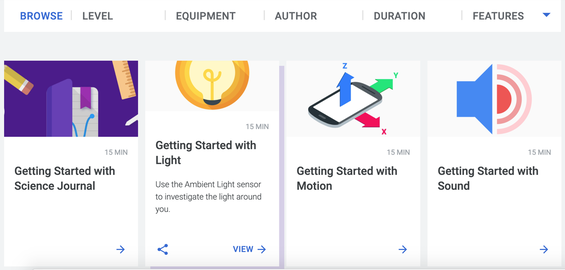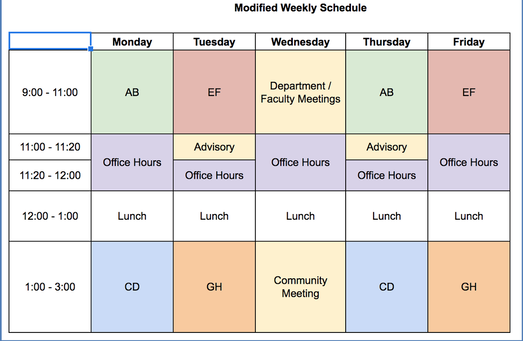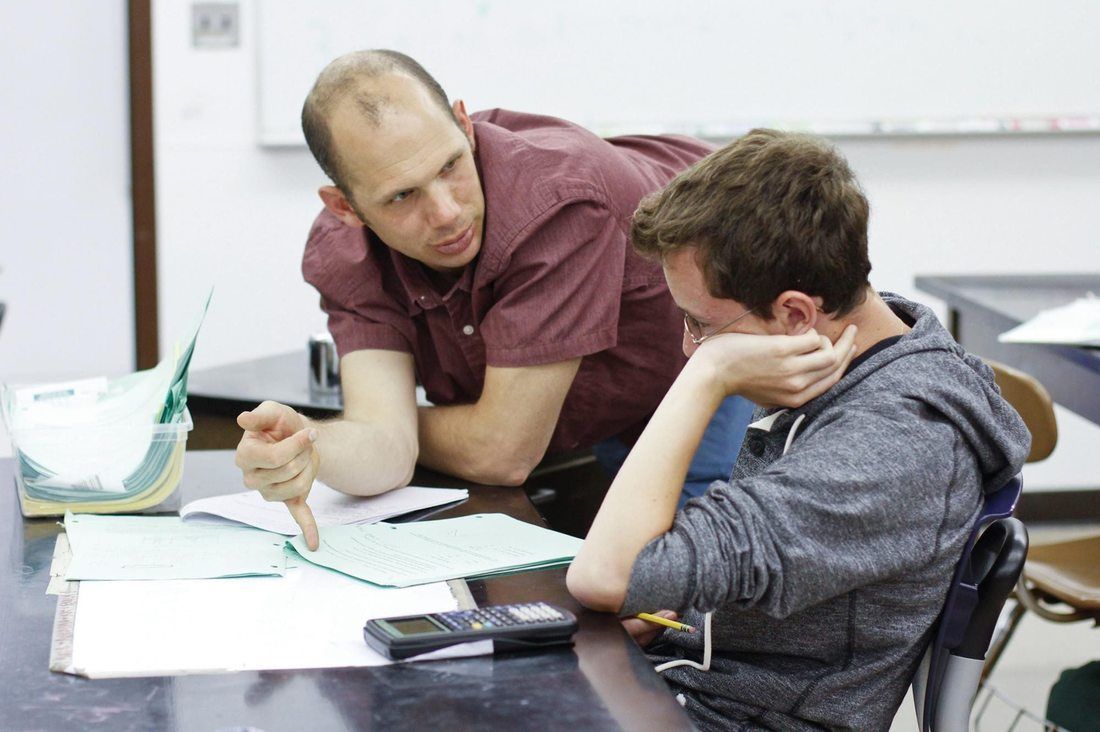|
|
|
For the "Lesson" portion of the 2-hour synchronous/synchronous blocks of time shared on Day -8. I will be creating screencast recordings of me annotating over PDF templates that that my students will be been given hard copies of (emailed to parents and printed).
I have a MacBook Air, and not an iPad, thus creation of these recorded lessons is a bit tricky on a Mac. Turns out drawing over a PDF in a seamless way is not that easy. I am brushing off my old #flipclass skills and below is the technology I will be using along with a video example:
Today's post is simple. I find myself completely distracted perusing the homeschooling possibilities for science teachers using Google's Science Journal. I began using this 4 years ago but stopped for some reason. I revisited the app today only to find a plethora of incredible, crowdsourced activities. Not sure if I or how I will integrate but I see lots of possibilities. For a later post. Enjoy!
Per the schedule shared on Day -10 I will be teaching classes in 2 hour blocks. Rather than do any live synchronous direct instruction using Zoom, I have elected to stay committed to inquiry learning, and will be doing a structured form of asynchronous learning that occurs during a synchronous 2 hour time-frame, leveraging live conferencing and chat for assistance when needed.
I am hopeful that this structure will be more seamless with less tech mishaps, provide the opportunity for live communication/relationship building, and is also be organized with respect to time parameters to respect family time and time needed with other courses. Below is the DAILY structure I am proposing for each class, along with associated pedagogy, technology and assessment format I am planning on integrating. Again, the goal is SIMPLICITY with respect to structure to leave room for DEPTH with respect to learning. As Jon Stewart said: "It is through intense structure that I find the safety to be creative." Phase 1: Check In
Click here for the beginnings of the document I will push out to students in my Honors Chemistry class. I hypothesize each class will be similar. Today I spent sometime reflecting on the tools I want to leverage when designing my online learning infrastructure. In doing so, I went back and revisited a 2013 opening keynote presentation I gave at the Fall CUE Conference in which I challenge teachers, and myself, to develop an "Ed Tech Mission Statement". Click here to view the entire presentation.
The idea is simple: In order to not get overwhelmed with myriad of tools out there, many of which are being increasingly advertised to teachers given the current situation, as educators, we must decide on our respective, AUTHENTIC pedagogies, and choose tools that align with them. For me, I am only looking for tools (as argued in the video), that relate to 1. Sparking Student Curiosity, 2. Tracking Student Curiosity and 3. Quenching Student Curiosity. For the past 10+ years I have been searching for tools that do the above three things well, and those things only. This has been my lens and this lens will not change as I move into this new phase. Keeping the above in mind, below are the tools I will be exploring over the next nine days. My goal is SIMPLIFY and STREAMLINE the deliver. Thus, I am confident only a few of the below tools will ultimately be used, but for now, below are the contenders: Google Drive (Tracking) Google Docs (Tracking/Quenching) Google Forms (Sparking/Tracking) YouTube (Sparking/Quenching) Screenflow (Quenching) Omnidazzle (Quenching) Zoom (Sparking/Quenching) Flipgrid (Tracking) Miro (Tracking/Quenching) IFTTT (Tracking) Kialo (Sparking) PearDeck (Tracking/Quenching) BitPaper (Sparking/Tracking/Quenching) Circuits on TinkerCad (Quenching) Reverse Engineering (Sparking) PDF Element (Quenching) Like teachers all around the globe I am in the process of transforming my face-to-face classroom instruction into one that is delivered 100% virtually from my living room. Below is the daily schedule that my school, Sonoma Academy, is transitioning to. Currently I teach 3 courses that all pose their own unique challenges in preparing for this transition: 10th grade Honors Chemistry (CD Period), 10-12th grade Biochemistry (EF Period), and 10th-12th grade Engineering for Social Good (AB Period).
The Pedagogy in each course ranges from an Inquiry Learning approach in Honors Chemistry that I have been developing for the past 20 years, to Biochemistry and Engineering for Social Good, two new elective courses that I developed and was teaching for the very first time. Biochemistry following a similar Inquiry Learning approach, while Engineering for Social Good is a heavily Project-Based. Transitioning each course to an online version that is MEANINGFUL, EFFECTIVE, and most importantly: LEVERAGES THE ONLINE LEARNING MEDIUM is proving to be a very daunting task. Our online learning program launches 10 days from now. My plan is to write a short blog post each day, sharing lessons learned, resources acquired, frustrations, modifications, reflections, tool, ideas, etc. etc., as I embark on this scary and vulnerable time with all of you. I hope you find the posts to come useful, and please feel free to respond with your own ideas, questions, concerns, or feedback! Ramsey |
Categories
All
Archives
February 2024
|



 RSS Feed
RSS Feed